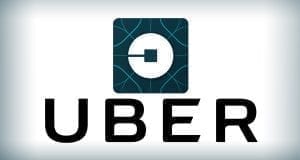Uber drivers in Massachusetts are suing the ride-sharing company, claiming it illegally labels its employees independent contractors in a bid to skirt minimum wage and state law.
The Boston Herald reports that the suit, filed earlier this week in the U.S. District Court for the District of Massachusetts, claims that the company “regularly fails to pay” drivers minimum wage. Some employees report earning less than $8 per hour, even though the state mandates $4 per hour more for all regular workers.
The plaintiffs also claim that Uber runs afoul of state law by refusing to pay over-time.
“Uber treats all of its drivers like independent contractors even though they provide the core service, which is transportation,” said attorney Travis Lenkner, managing partner at Keller Lekner LLC. “By doing that, Uber gets to evade minimum wage, overtime, and sick leave laws. Many of the drivers make less than $8 an hour even though in Massachusetts it is $12 an hour.”
According to the Boston Herald, many “gig economy” workers—including Uber and Lyft drivers—are hired as independent contractors, exempting their employers from having to pay minimum wage and provide certain benefits.
“They are denied fundamental rights under federal and state laws, on minimum wage, overtime pay, and sick time,” Lenkner said.
Whether Uber drivers should be considered regular employees is a question which has caused the company considerable difficulty.

Uber won a large victory in April of last year, after a judge ruled against limousine drivers operating under the Uber Black tag. In his decision, U.S. District Judge Michael Baylson said the company doesn’t exert enough control over drivers for them to be classed as employees.
Baylson said that drivers work when they want and are free to do as they please between rides.
While some companies erroneously categorize their own employees as independent contractors, certain criteria must be met to challenge the distinction. A proper employee, for instance, often uses company equipment, works in a controlled environment and operates under restriction.
However, Uber has settled driver classification suits in the past. A 2016 settlement would have paid drivers upwards of $100 million, but the amount was rejected by a federal judge as being neither adequate nor fair.
Lenkner says the ride-sharing company often tries to cast its drivers as owners of their own businesses, even though the nature of their work should grant them federal and state protections.
“These aren’t independent business owners, they signed up to work for Uber and they’re under-compensated,” he said. “So while Uber is reaping more money for themselves, you have thousands of Uber drivers across the country who are underpaid.”
The Boston Herald notes that Massachusetts law also requires that businesses provide employees with earning statements that allow them to assess their hourly wage.
“Uber doesn’t give drivers a W-2 form, instead it’s weekly, monthly and annual statements but don’t contain full hours worked for mileage figures,” Lenkner said. “Even when Uber has that information readily available. How many miles did they drive? That’s relevant to their expense since Uber isn’t reimbursing drivers for that.”
Sources
Uber drivers are freelancers, not employees, judge rules
Uber drivers file suit against ride-sharing company over wages, OT


Join the conversation!